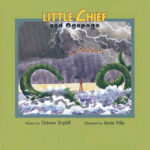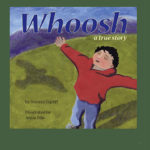
The most fun college class I’ve created and taught so far was when students including my oldest son asked me to put together a college vocabulary class so their skills could grow. I found a great book and we were off and running. Call me sentimental, but I still have a few fun student compositions from their related writing exercises. “Take the 25-30 vocabulary building words we studied this week and incorporate them into a single story,” I’d say—and they did. The best book I found then that I haven’t improved on is Vocabulary For the College Bound by Levine, still available in book form, PDF, and even on You Tube.
My enthusiastic students even acted out or pantomimed some word stories and we had to guess what was going on. For example, the Arms Race involved students racing across our classroom wiggling their arms. One student, now a mother herself, had a classmate lure me to my back porch while she hid behind my ideally-located upstairs window with an ice-cream bucket containing water with yellow food coloring and a few wisps of toilet paper floating in it to make it convincing when I unwittingly got into position for her to dump it on me. A courageous co-conspirator hid behind a nearby building with a video camera capturing my response. That week involved the vocabulary word Garde lieu, one of their favorites. It means “Guard yourself,” or more colloquially, “Watch out below,” rising from the historic practice of carrying chamber pots outside to dump them, or in cities tossing the contents out of windows into streets below. Therefore city streets had gutters at their edges and gentlemen walked on the outsides of streets, hopefully wearing raincoats or capes, while their companions were protected by walking closer to buildings. 
This re-enactment was a great success as I was ambushed, but not totally drenched. Those students passed my course but the video tape showing my reaction was confiscated by our college administrator and disappeared. I suppose it’s nice to be highly regarded and make an impression on students. Most of us remain friends welcome in my home and I love visiting theirs.
Another origin that surprised us was “curfew,” and our college had one. It literally means a signal, usually with a bell, announcing the start of time restrictions. In medieval Europe it meant ringing a bell at a specific evening hour to announce time to cover or extinguish household fires. That’s the exact word meaning in its French origin—shut the draft on the fireplace or stove to prepare for night and send visitors home.
I love words and their meanings. They help me grow in vocabulary and increase reading and writing enjoyment. Please share the word origin of one of your favorite words to increase interest for the rest of us.






Leave a Reply